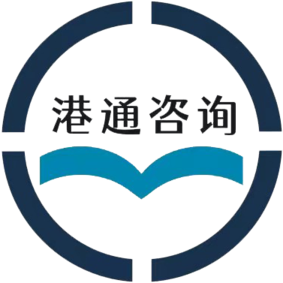内地与香港税收安排条件 - 了解双方优势运用的关键
在全球商业发展中,香港作为一个热门的投资与商业中心吸引着大量的公司。与内地相比,香港的税收安排条件使其成为许多企业的首选地。但是,在选择合适的税收安排时,了解内地与香港之间的条件和优势是至关重要的。本文将介绍内地与香港的税收安排条件,并探讨如何充分利用双方的优势。
1. 内地的税收安排条件
内地税收制度相对较复杂,但其有着强大的市场和潜在的商机。根据《中华人民共和国企业所得税法》,内地企业的利润应纳税,税率为25%。除此之外,还有一些地方性政策和优惠措施,以吸引外商投资。
然而,相比香港,内地的税率较高,这对一些公司而言可能是一个不可忽视的因素。此外,内地企业在进行对外投资时,也需要申请外汇许可证和按规定缴纳印花税。这些因素增加了财务和行政成本,可能会影响企业的竞争力。
2. 香港的税收安排条件
香港是一个低税收的地区,享有全球声誉。根据《香港特别行政区税务条例》,仅香港境内发生的收入才受香港企业所得税管辖。税率相对较低,通常为16.5%,是吸引企业在香港注册的重要因素之一。
在香港,还存在一些税收优惠政策,以鼓励经济发展。例如,对研发支出享有税务抵免措施,对于依靠知识产权的公司来说,这是一个很大的优势。此外,香港还拥有自由兑换和没有外汇限制的金融体系,为国际商业提供了一个理想的环境。
3. 如何利用内地与香港的优势
对于企业来说,了解内地与香港的税收安排条件是关键。根据业务和发展需求,可以合理安排公司的注册地并灵活运用双方的优势,以获得最大的利益。
例如,一家在内地开展生产业务的企业可以在香港注册一个子公司,将研发和知识产权相关的业务转移到香港。这样可以享受香港低税率的优势,并通过免税政策减少研发成本。同时,由于两地紧密的经济联系和便利的货物流通,可以轻松实现产品的销售和分销。
此外,香港还可以作为一个桥梁,吸引内地企业拓展国际业务。通过在香港注册公司,可以利用其国际金融体系和税收优势,更便捷地进行对外投资和跨境贸易。
总结起来,了解内地与香港的税收安排条件是构建最优化企业运营模式的关键。根据公司的特殊需求和发展战略,合理利用双方的优势,并依法合规进行相关税收安排,将为企业带来更大的商业机会和竞争优势。
以上就是关于“内地与香港税收安排条件”的内容,希望对您有所帮助。

When it comes to global business development, Hong Kong stands out as a popular investment and commercial hub, attracting numerous companies worldwide. Compared to mainland China, Hong Kong's tax arrangement conditions make it the preferred choice for many businesses. However, understanding the conditions and advantages between mainland and Hong Kong is critical when choosing the appropriate tax arrangement. This article will explore the tax arrangement conditions between mainland China and Hong Kong and discuss how to maximize the benefits on both sides.
1. Tax Arrangement Conditions in Mainland China
The tax system in mainland China is relatively complex, but it possesses a strong market and potential business opportunities. According to the "Enterprise Income Tax Law of the People's Republic of China," enterprises in mainland China are subject to taxation on their profits, with a tax rate of 25%. Additionally, there are local policies and preferential measures aimed at attracting foreign investment.
However, compared to Hong Kong, mainland China has higher tax rates, which can be a significant factor for some companies. Moreover, mainland Chinese companies need to apply for foreign exchange permits and pay stamp duty when conducting overseas investments. These factors increase financial and administrative costs, potentially affecting a company's competitiveness.
2. Tax Arrangement Conditions in Hong Kong
Hong Kong is known globally as a low-tax jurisdiction. According to the "Inland Revenue Ordinance of the Hong Kong Special Administrative Region," only income generated within Hong Kong falls under the jurisdiction of Hong Kong profits tax. The tax rate is relatively low, typically at 16.5%, making it one of the significant factors that attract companies to register in Hong Kong.
Furthermore, Hong Kong offers various tax incentives to encourage economic development. For example, there are tax deductions available for research and development expenses, which is a significant advantage for companies relying on intellectual property rights. Additionally, Hong Kong possesses a free convertibility and unrestricted foreign exchange system, providing an ideal environment for international business.
3. Maximizing the Benefits of Mainland China and Hong Kong
Understanding the tax arrangement conditions in mainland China and Hong Kong is crucial for companies. Depending on their business and development needs, they can strategically choose the registration location for their company and leverage the advantages on both sides to gain maximum benefits.
For instance, a company conducting production operations in mainland China can register a subsidiary in Hong Kong and transfer research and development and intellectual property-related activities to Hong Kong. This allows them to benefit from Hong Kong's low tax rate and reduce R&D costs through tax exemptions. Simultaneously, due to the close economic ties and convenient movement of goods between the two regions, product sales and distribution can be easily realized.
Moreover, Hong Kong can serve as a bridge, attracting mainland Chinese companies to expand their international business. By registering a company in Hong Kong, they can utilize its international financial system and tax advantages to facilitate overseas investments and cross-border trade more efficiently.
In conclusion, understanding the tax arrangement conditions in mainland China and Hong Kong is key to constructing an optimized corporate operating model. By reasonably utilizing the advantages on both sides according to a company's unique requirements and development strategies, and arranging taxes in compliance with the law, businesses can gain greater commercial opportunities and competitive advantages.
以上就是关于“内地与香港税收安排条件”的内容,希望对您有所帮助。











